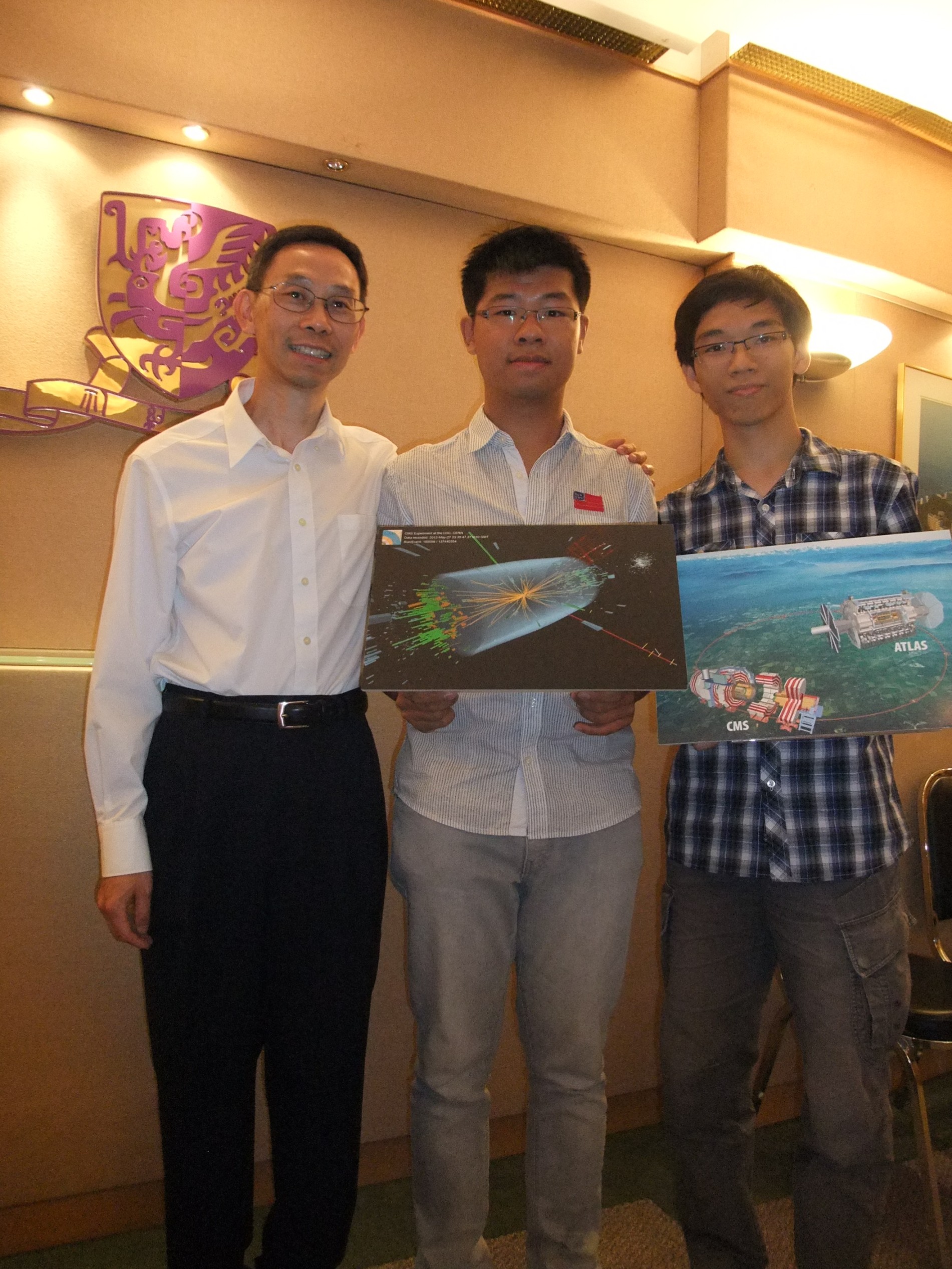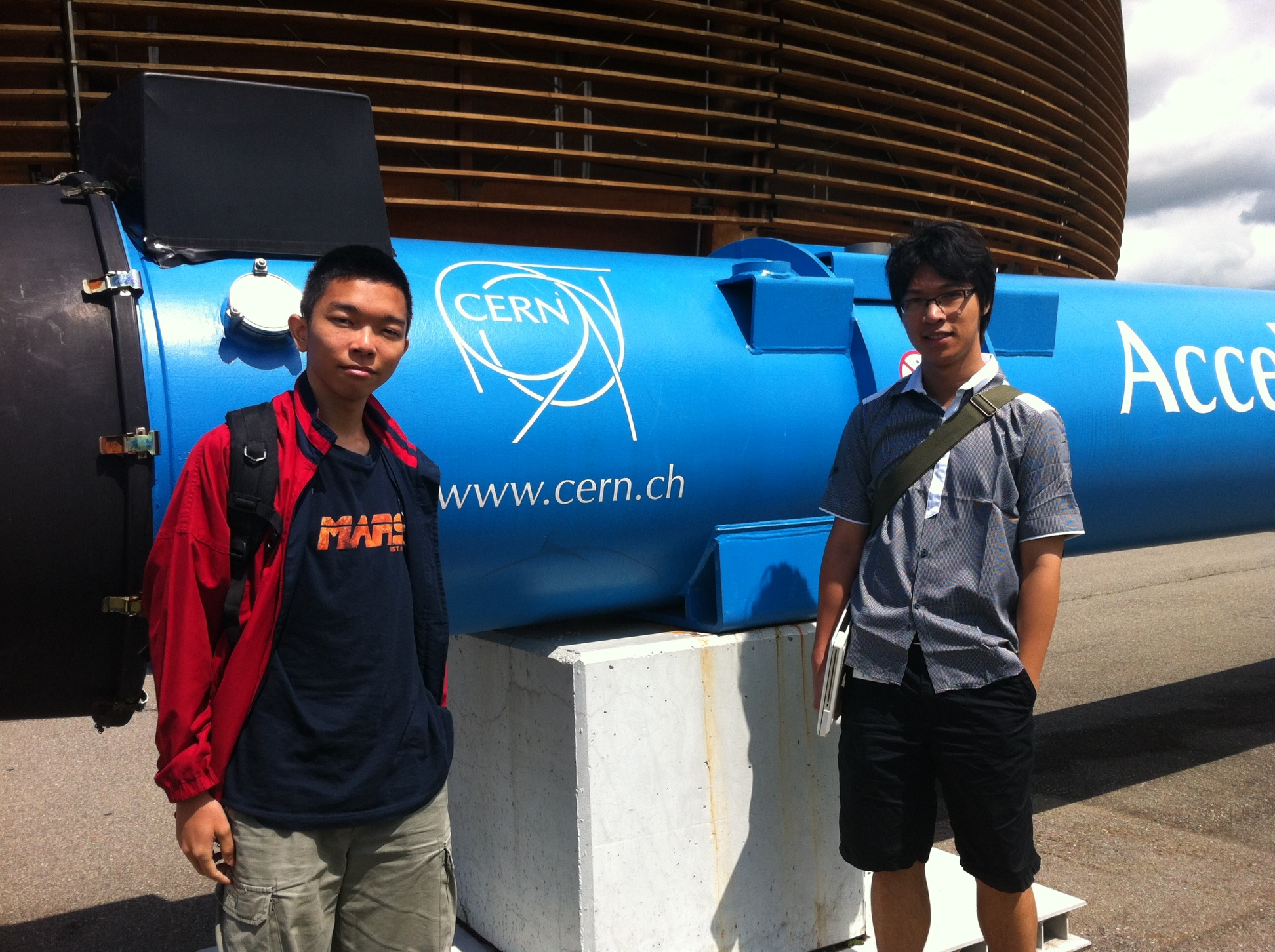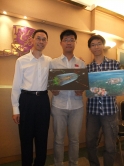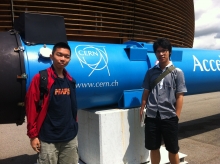CUHK
News Centre
CUHK Signs Agreement with CERN to Enable Physics Students and Scientists to Take Up Research in Experimental Particle PhysicsWorking Towards Unveiling Mysteries of Universe and Promoting Technology Advancement
The Chinese University of Hong Kong (CUHK) and the Compact Muon Solenoid Experiment (CMS) at the European Organization for Nuclear Research (CERN) will sign an agreement for cooperation which enables postgraduate students and senior scientists from the Department of Physics at CUHK to take up research in experimental particle physics and related aspects of detector physics, data analysis, and information technology. Co-operative research is to be encouraged as individual scholars establish contact and develop mutual interests. Undergraduate students will also enjoy the rare opportunity to participate in the CERN Summer Student Program to work with CERN scientists on research projects and attend lecture courses.
Founded in 1954, CERN is one of the world’s largest and most respected centres for scientific research. Its business is fundamental physics, finding out what the Universe is made of and how it works. At CERN, the world’s largest and most complex scientific instruments are used to study the basic constituents of matter — the fundamental particles, and thus the laws of Nature. CMS is one of the two major experiments at CERN and also one of the largest scientific collaborations in the world, with a membership of over 3,000 physicists from 179 institutions in 41 countries. Weighing around the same as 30 jumbo jets and 15 metres in diameter, CMS is a particle detector that is designed to see a wide range of particles and phenomena produced in high-energy collisions in the Large Hadron Collider (LHC) at CERN, the most powerful particle accelerator ever built in the world. By studying particle collisions at the highest energy available, CMS physicists look for answers to some of the most intriguing questions of fundamental physics, such as the origin of mass, nature of dark matter, how the four fundamental forces of nature are unified, and whether there are hidden extra dimensions of space. On 4 July 2012, CMS, along with ATLAS, another experiment at CERN, announced the discovery of a new particle which is likely to be the long sought Higgs Particle (the so-called God Particle), a major step forward towards understanding the fundamental structure of matter and other mysteries of our universe.
Physics students from CUHK have long been active in participating in forefront research. Since 2000, the department has sponsored outstanding undergraduate students every year to take up summer research work in leading research groups overseas, and 11 papers reporting results of these works have been published in first rank international journals. Most of these students have continued on for PhD study and become active researchers. Last summer, two undergraduate students, Martin Kwok Ka Hei and John Leung Shing Chau, joined the CERN Summer Student Program. Martin worked on analyzing the huge set of data acquired by the CMS detector, while John helped with production of one of the detector components, the Cathode Stripe Chambers. Both students will embark on their postgraduate studies at CUHK and continue to work on the CMS research program. This summer, two other undergraduate students, Li Tsun Yin and Michael Tam Chun Nam, are currently working on analyzing data from the CMS detector and looking for ways to improve the ways to find particle tracks. Several CUHK Physics alumni have also contributed to the CERN research program. Cheung Sing Leung (BSc ’01, MPhil ’03) and Cheng Hok Chuen (BSc ’10) are currently working on the Higgs search as members of the ATLAS collaboration, and So Chuk Man (BSc ’08) is a member of the ALPHA team which succeeded in trapping anti-hydrogen atoms for over 16 minutes in 2011.
The Agreement for Cooperation between CUHK and CMS at CERN will be signed by Prof. Ng Cheuk-yiu, Dean of Science, CUHK, and Prof. Joe Incandela, Spokesperson of CMS. Professor Incandela and Prof. Albert de Roeck, Convenor of the CMS Higgs group, will give a seminar and a colloquium at CUHK after the signing ceremony to report findings from the CMS experiment, including the possible discovery of the Higgs Particle.
(From left) Prof. Chu Ming-chung, Professor, Department of Physics, CUHK with two postgraduate students John Leung Shing Chau and Martin Kwok Ka Hei.







